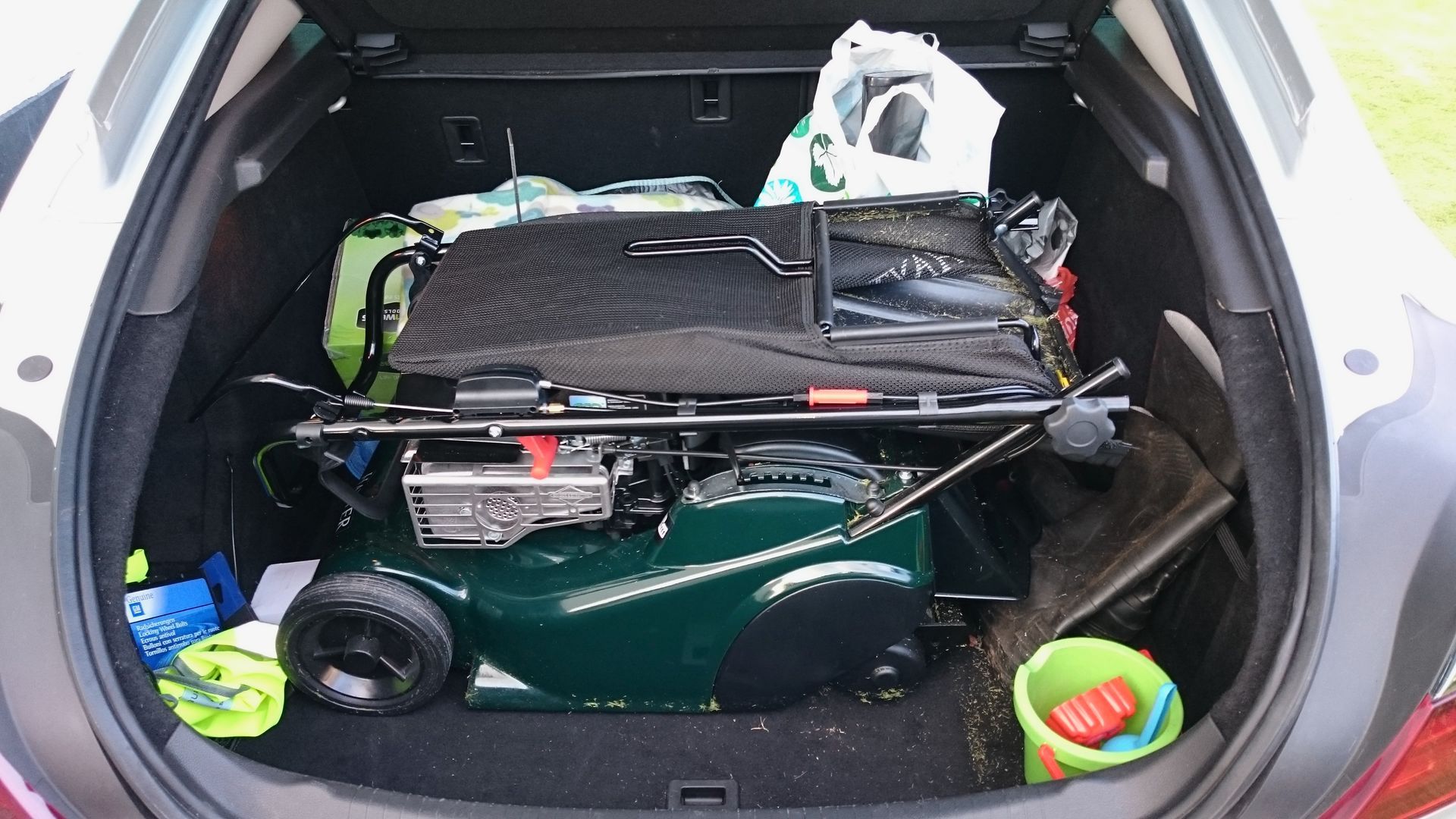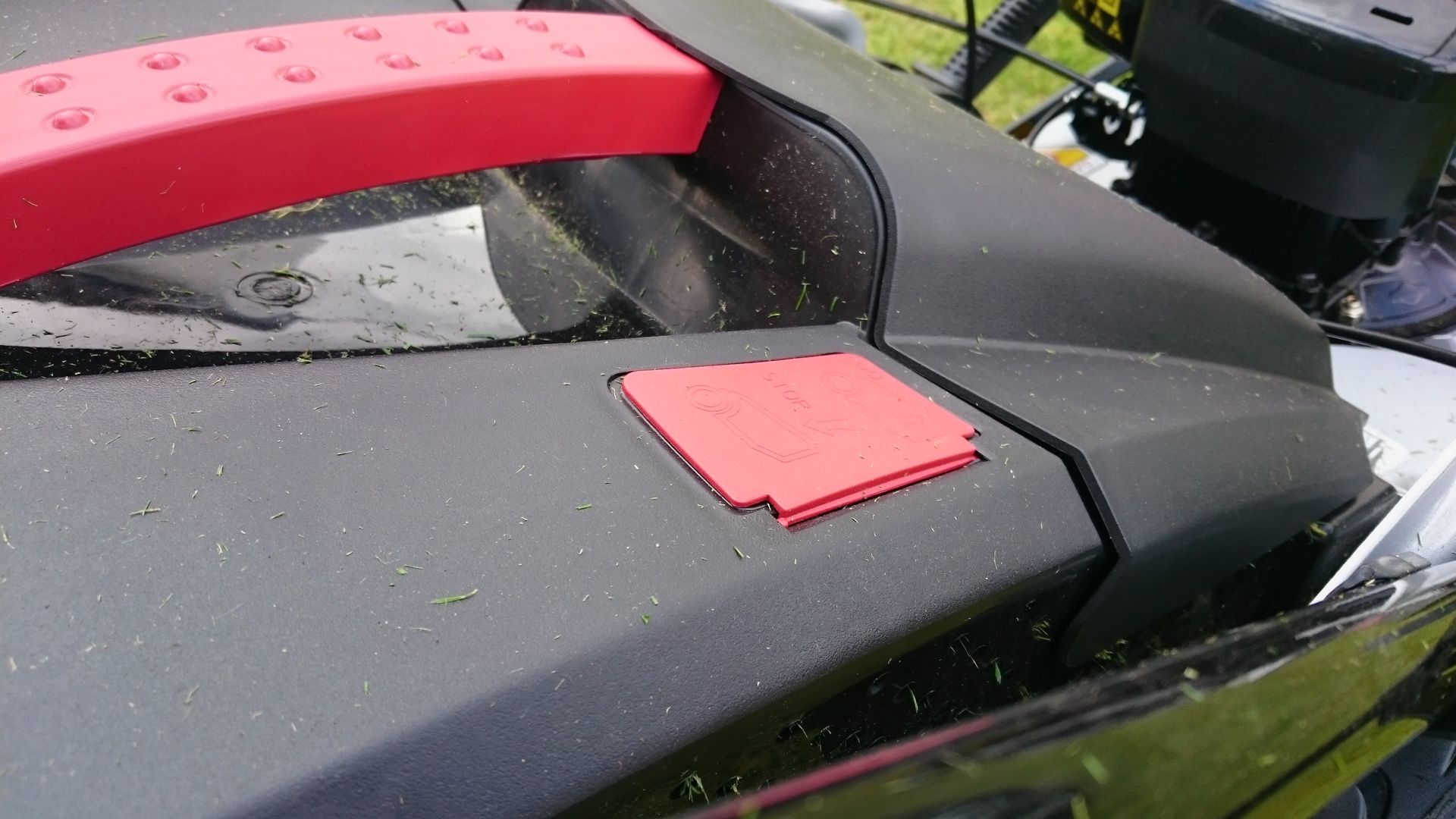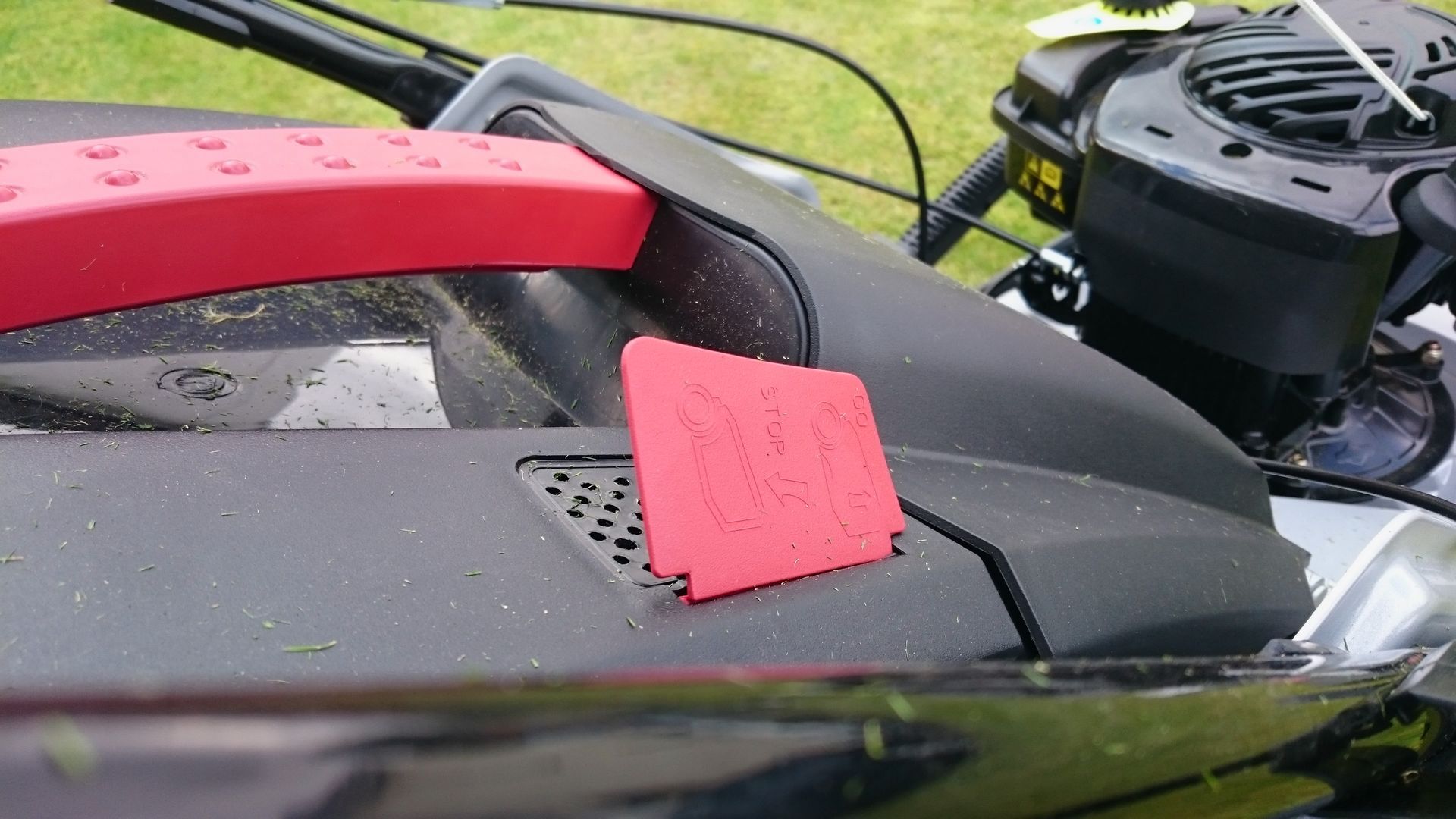*Important Information: As an audience supported website, if you purchase an item after clicking an external link or advertisement marked with an asterisk (*) on this website, we may receive a commission. This does not change the price you pay.
Today's mowers incorporate more features and offer more benefits than ever before. Image Credit: Author
Features
Today’s mowers incorporate more technology than ever before. And thanks to the research and development efforts of manufacturers worldwide, the level of technology is continually increasing.
Below, we take a closer look at some equipment fitted to today’s machines, together with the difference it can make on your lawn and in your garden.
Today's mowers incorporate more features and offer more benefits than ever before. Image Credit: Author
Key and Push Button Starting
Once considered a premium feature reserved for high-end consumer and professional-grade equipment, key start and push-button ignition systems are now standard, across a wide range of petrol, electric, and cordless battery-powered lawn mowers. These systems simplify the ignition process, making start-up quicker, more reliable, and less physically demanding.
As the name implies, a key start system requires the insertion of a key before the engine can be engaged. Beyond offering an added layer of convenience, this design also serves as a built-in security measure, significantly reducing the risk of unauthorised operation. This is particularly valuable in households with children or young people, where preventing unintended use is an important consideration.
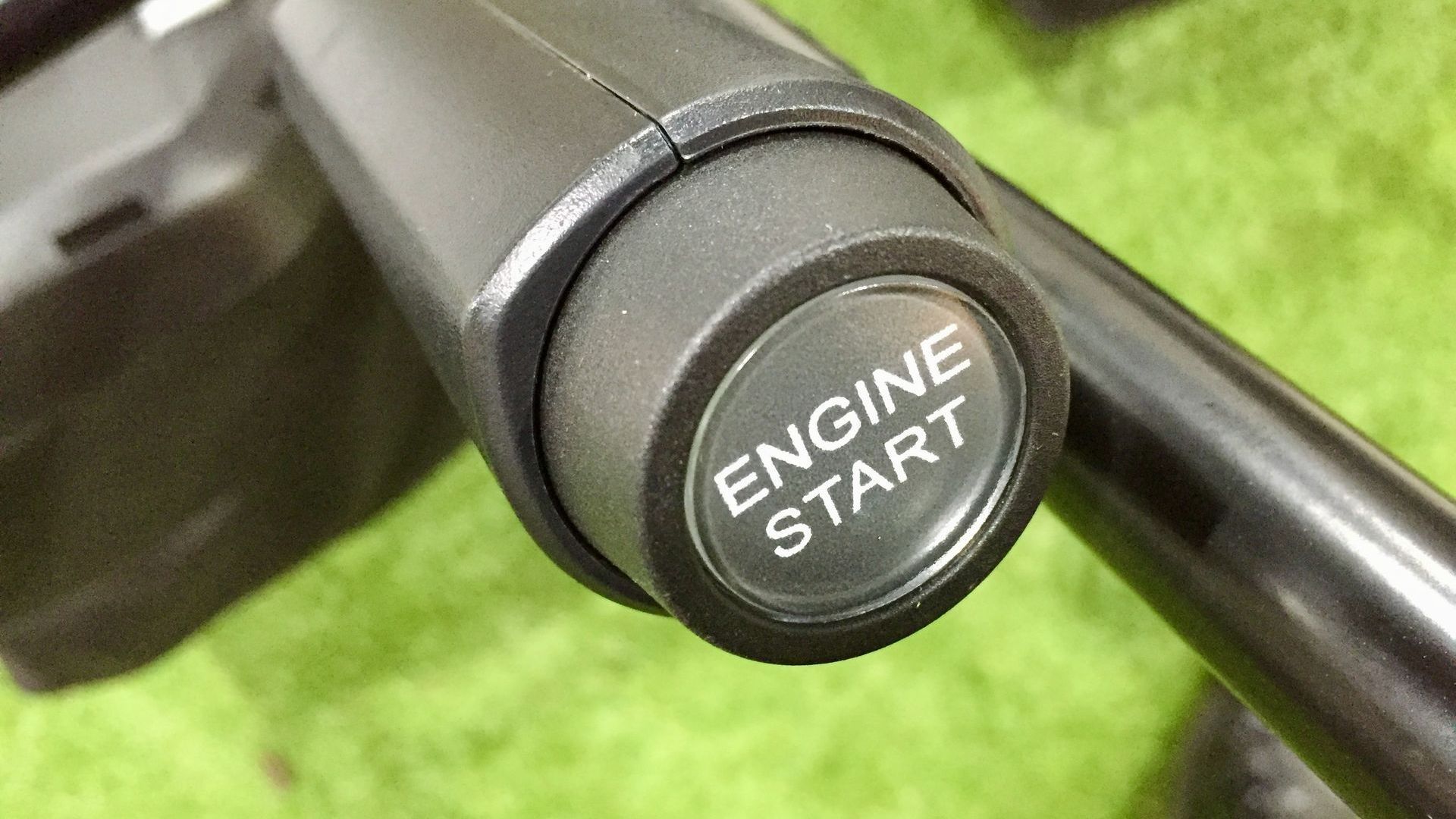
Push button starting system, fitted to an ATCO lawnmower. Image Credit: Author
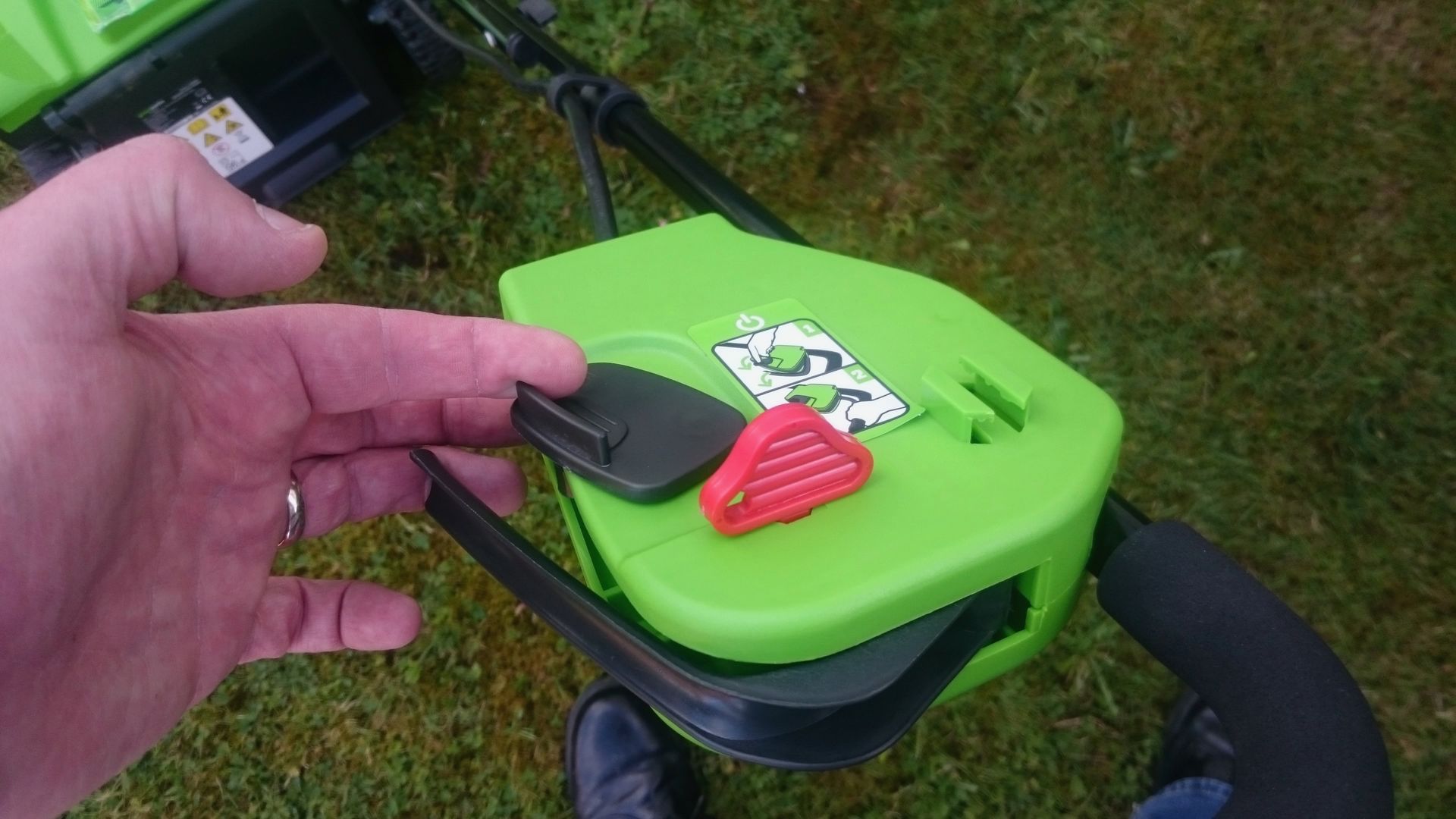
Key start system, fitted to a Greenworks' cordless lawnmower.
Image Credit: Author
Ball Bearing Wheels
Modern lawn mowers are increasingly equipped with ball bearing wheels. This reduces rolling resistance, for smoother operation and consistency across the lawn. In addition to enhancing ride quality, ball bearings minimise wear on the wheel assembly, thereby extending component life, and reducing long-term maintenance requirements.
Folding Handles
Nearly all mowers today are equipped with folding handle assemblies, but the quality and practicality of these systems can vary markedly. Some mechanisms offer quick-release functionality and compact folding dimensions, while others are more cumbersome.
If storage space is limited, or if you need to transport your mower regularly, it’s important to consider the size of the mower with the handles folded and any grass collector removed. On more than one occasion, a customer has purchased a mower, only to find when they leave the showroom, it's too large to fit in their car.
If you need to transport your mower, it's important to ensure it will fit in your car, with the handlebars folded, and the grass collector removed. Image Credit: Author
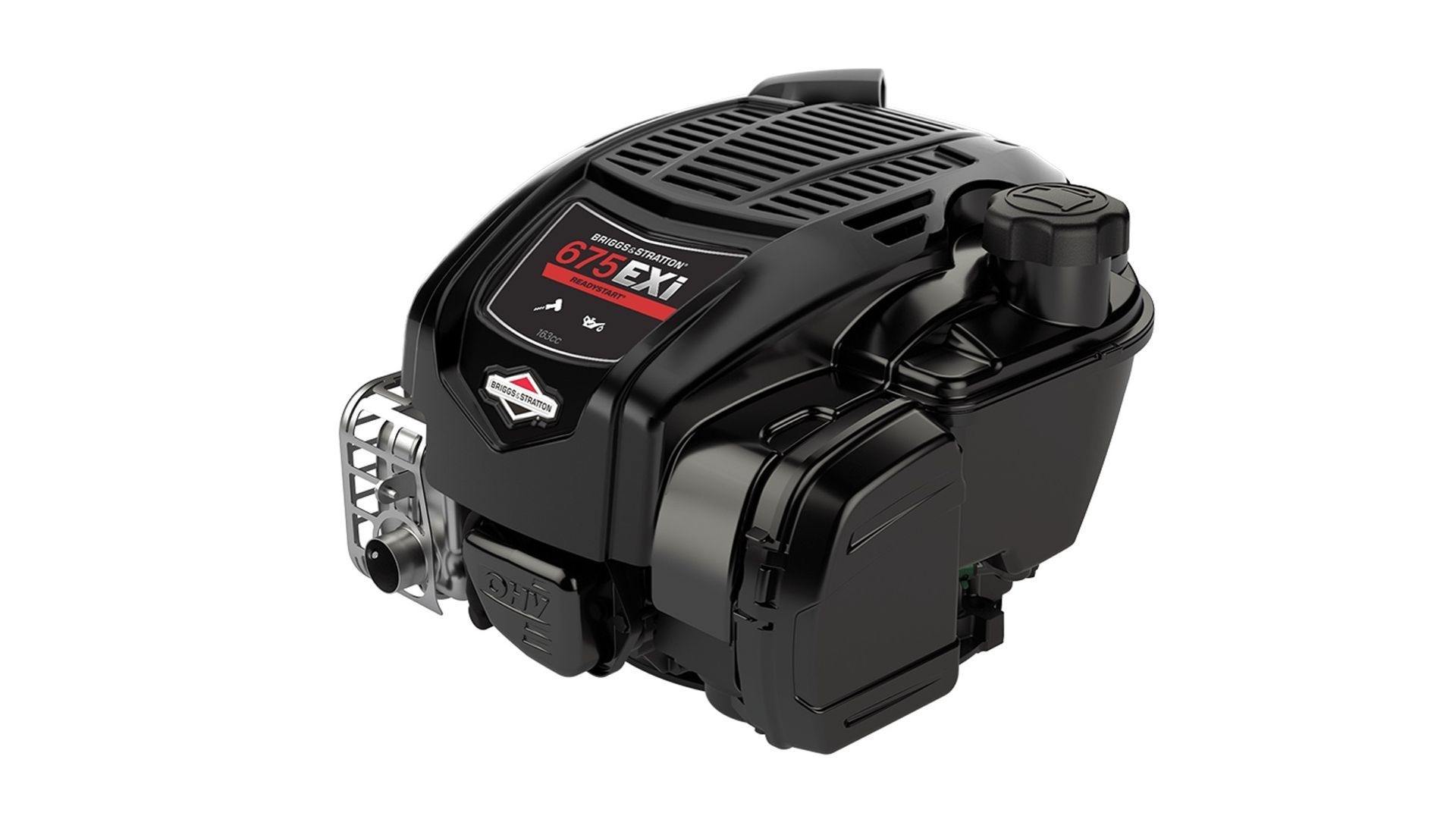
Briggs & Stratton's 163cc 675EXi engine, benefits from the American giant's Just Check & Add™ technology, to eliminate the requirement for oil changes.
Image Credit: Briggs & Stratton
Oil Change Free Engines
Let’s face it, nobody likes oil. It smells, it stains, it pollutes, it’s a spill hazard, a slip hazard, and waste oil is difficult to dispose of responsibly. Yet, oil is the lifeblood of any petrol engine.
So, to reduce how often you need to change oil in your lawn mower’s engine, Briggs & Stratton offer a range of Just Check & Add™ petrol engines. This clever technology ensures you will never have to change your engine’s oil ever again - just periodically check the oil level and top up periodically (if required) for the life of the engine.
And to take the concept of ease of maintenance a step further, Just Check & Add™ engines, do not require the use of hand tools or power tools, for basic engine maintenance. At the time of writing, Just Check & Add™ is available on selected Briggs & Stratton engines in the UK and EU, including 625EXi, 675EXi and 875EXi models.
Grass Box Indicators
At one time when using a rotary mower equipped with a grass box, the only way to know when it required emptying was to look for signs of spillage on the lawn. Thankfully, those days are long gone. Instead, most manufacturers now take one of a number of different approaches:
- Some machines are equipped with a grass box flap, which is activated by air passing through the collector. When the machine is in operation and space remains inside the grass box, the flap points upwards. Conversely, when the grass box is full, the flap will point downwards;
- Other machines – e.g. some hover mowers – are supplied with a grass box which cleverly incorporates an injection moulded, transparent lid. This allows you to directly view the level of collected grass inside the collector;
- A small number of machines - typically equipped with rigid grass collectors - provide small ‘peek holes’ that allow you to see directly into the grass collector. These will need to be cleared regularly to remain effective;
- Machines with an electronic indicator are available, which use inbuilt sensors to monitor the volume of clippings inside the collector.
The author’s preference is very definitely for the flap mechanism, unless using a hover mower, when a box with a transparent lid is preferred. And of course, if you’re using a cylinder mower, you’ll likely be able to always see the contents, thanks to the open collector design usually employed.
Inset Wheels
A wheeled mower with inset wheels, has its wheels positioned inboard of the cutting deck. This allows the mower to cut closer to garden edges and obstacles (e.g. fence posts, pillars, gate posts etc.) reducing the requirement for post-mow strimming.
Deck Wash Port
Sometimes called a ‘washout port’, a deck wash port helps you remove debris, dirt and clippings from the mower – providing for a more efficient cut and helping to prolong the life of your machine.
Using a deck wash port couldn’t be simpler. Just connect a hose to the deck wash port, turn on the tap, start the mower, engage the blade, and dirt and debris will be removed quickly, efficiently and with only a minimum of effort. However, to reduce the risk of corrosion - especially on machines with steel cutting decks - just be sure to dry the machine off afterwards.

